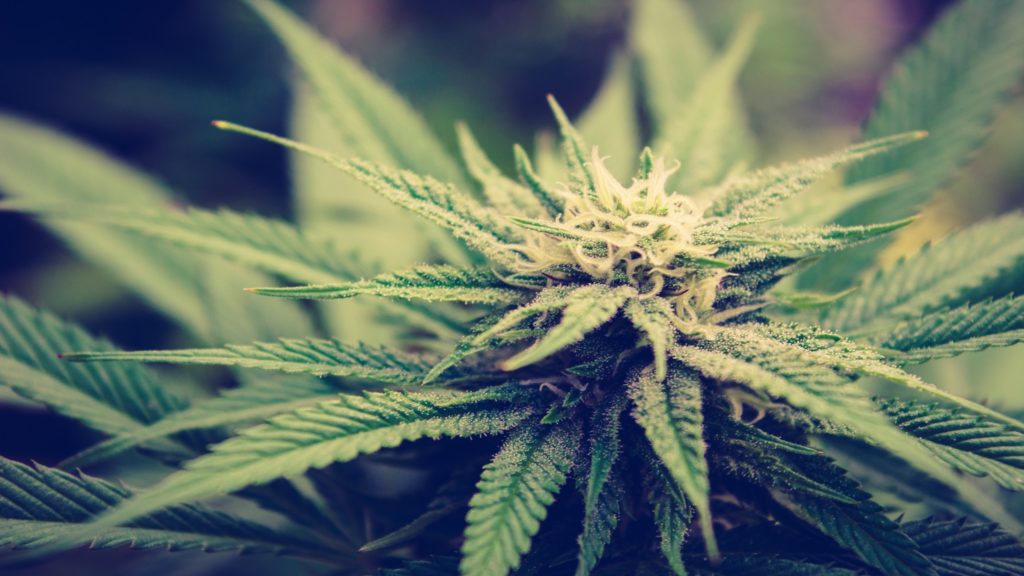In recent years, cannabinoids — the active chemicals in medical marijuana — have been increasingly touted as a potential treatment for a range of neurological and psychiatric disorders. In a Developmental Medicine & Child Neurology review, investigators compare their efficacy with antiepileptic drugs for children with epilepsy.
One cannabinoid, called cannabidiol (CBD), has the most evidence of antiepileptic efficacy and does not have psychoactive effects. There has been little evidence for its use apart from anecdotal reports, until the last year.
The review notes that in three randomized, placebo-controlled, double-blind trials in Dravet syndrome and Lennox-Gastaut syndrome (two forms of childhood epilepsy), CBD produced a 38 percent to 41 percent median reduction in all seizures compared with 13 percent to 19 percent with placebo. Similarly, CBD resulted in a 39 percent to 46 percent responder rate (50 percent convulsive or drop-seizure reduction) compared with 14 percent to 27 percent with placebo. CBD was well tolerated, however sedation, diarrhea, and decreased appetite were frequent.
“Community debate about the use of CBD and access to this antiepileptic therapy has been heated,” the authors wrote. “With further trials and greater understanding of its role, the place of CBD in our antiepileptic armamentarium and its impact on comorbidities will become clearer.”
Study Shows Nearly 70 Percent of Cannabidiol Extracts Sold Online Are Mislabeled
A new study by a Penn Medicine researcher, published this week in JAMA, found that nearly 70 percent of all cannabidiol products sold online are either over or under labeled, causing potential serious harm to its consumers. Marcel Bonn-Miller, PhD, an adjunct assistant professor of Psychology in Psychiatry and the lead author on the study, believes the mislabeling of cannabidiol products is a direct result of inadequate regulation and oversight.
For a month, Bonn-Miller and his team of researchers conducted internet searches to identify and purchase CBD products available for online retail purchase that included CBD content on the packaging. The team purchased and analyzed 84 products from 31 different companies and found that more than 42 percent of products were under-labeled, meaning that the product contained a higher concentration of CBD than indicated. Another 26 percent of products purchased were over-labeled, meaning the product contained a lower concentration of CBD than indicated. Only 30 percent of CBD products purchased contained an actual CBD content that was within 10% of the amount listed on the product label. While studies have not shown that too much CBD can be harmful, products containing either too little or too much CBD than labeled could negate potential clinical benefit to patients. Further, the variability across products may make it troublesome for patients to get a reliable effect.
“People are using this as medicine for many conditions (anxiety, inflammation, pain, epilepsy),” Bonn-Miller explained. “The biggest implication is that many of these patients may not be getting the proper dosage; they’re either not getting enough for it to be effective or they’re getting too much.”
According to Bonn-Miller, a number of products also contained a significant amount of THC—the chemical compound in cannabis responsible for making a person feel “high” — which has been shown cause cognitive impairment and other adverse health effects. “This is a medication that is often used for children with epilepsy, so parents could be giving their child THC without even knowing it,” he said.
You may be wondering what the benefits of hemp are? Find out why it is known as one of the most versatile plants on the planet by checking out this story on our blog! Click the link below to read more. #CBD #hemp #PlusCBDOil #YouPlusCBD https://t.co/W6bC0KsoW9
— PlusCBDOil (@YouPlusCBD) January 16, 2019

 CBD Shows Health Benefits in Estrogen-Deficient Mice that Model Postmenopause
CBD Shows Health Benefits in Estrogen-Deficient Mice that Model Postmenopause CBD reduces plaque, improves cognition in model of familial Alzheimer’s
CBD reduces plaque, improves cognition in model of familial Alzheimer’s New evidence of health threat from chemicals in marijuana and tobacco smoke
New evidence of health threat from chemicals in marijuana and tobacco smoke High fat foods can increase oral cannabidiol absorption into the body
High fat foods can increase oral cannabidiol absorption into the body